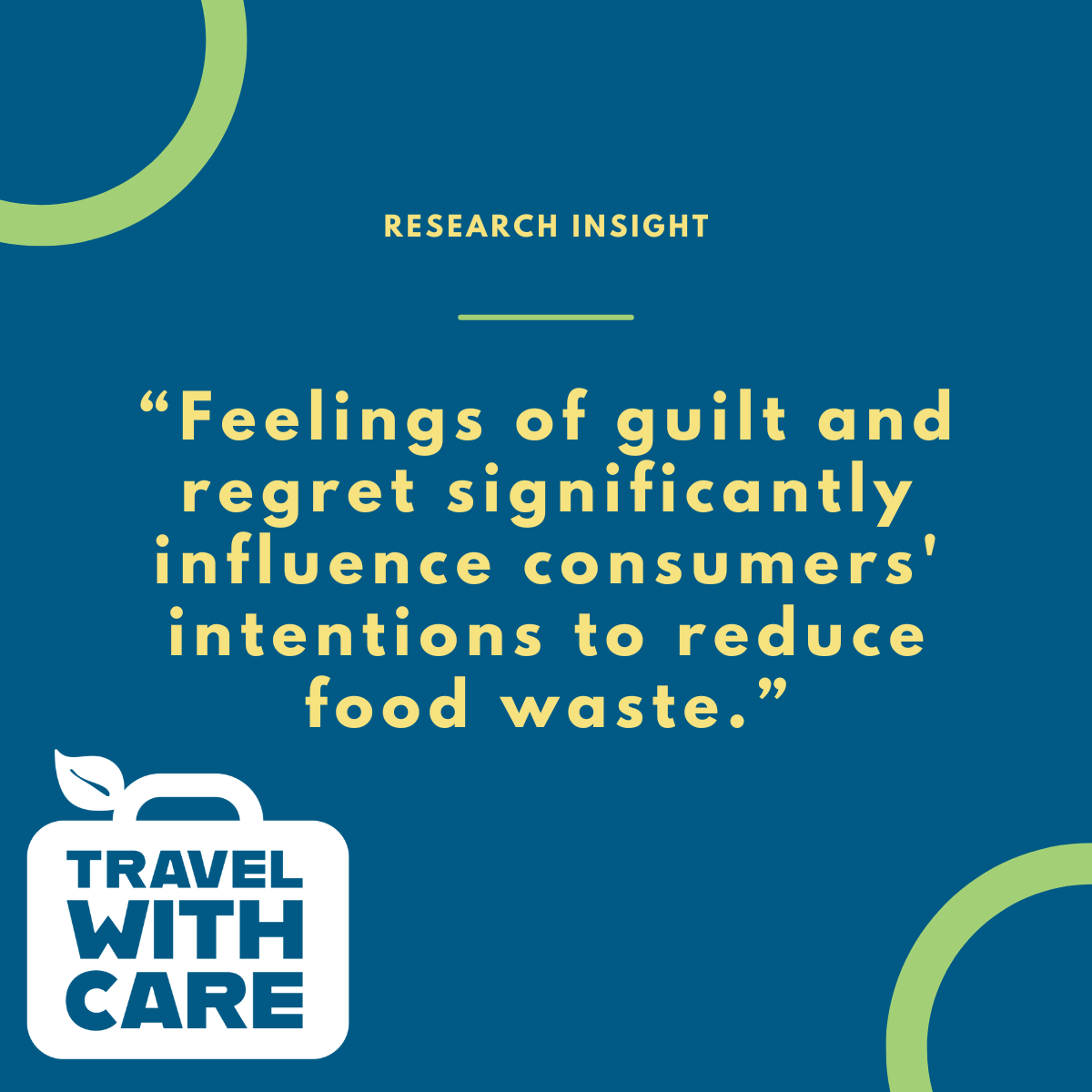
16 Jun Guilt as a Guide
What if a little guilt could lead to a lot of good?
Appealing to travelers’ emotions can be an effective strategy to influence sustainable behavior across diverse contexts.
A recent study by Chakrabortya & Mattila (2024) found that emotional responses, particularly feelings of guilt and regret, significantly influence consumers’ intentions to reduce food waste, regardless of restaurant type or setting.
This suggests that emotional appeals rooted in personal responsibility and ethical values can have broad impact.
Although this study was grounded in the restaurant setting, DMOs could leverage this insight by designing campaigns that evoke responsible emotions, such as highlighting the environmental and social impacts of waste, to motivate travelers to adopt more sustainable behaviors during their visit.
Tailoring messages to resonate with travelers’ emotional drivers can enhance their commitment to responsible travel practices at the destination.
This approach supports messaging that frames responsible travel as a moral and personal obligation and not just a preference or lifestyle choice.
The study can be found here.
Chakraborty, D., & Mattila, A. S. (2024). The effect of self-conscious emotions of guilt and regret on consumers’ intentions to reduce food waste. Journal of Sustainable Tourism, 1–19. https://doi-org.ezproxy.lib.purdue.edu/10.1080/09669582.2024.2406532

